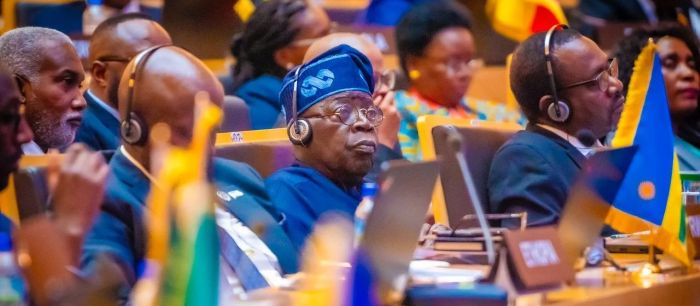(3 Minutes Read)
Nigerian President Bola Tinubu opposed a plan to separate the Department of Political Affairs, Peace, and Security (PAPS) into two distinct entities during the 38th African Union (AU) Summit. As Chairperson of the Economic Community of West African States (ECOWAS), he argued that this division could undermine conflict resolution and governance across the continent.
While praising Rwandan President Paul Kagame and Kenyan President William Ruto for their roles in driving AU reforms, Tinubu emphasized the need to streamline processes instead of expanding bureaucracies. He noted Nigeria’s support for essential reform initiatives, including the establishment of a Heads of State and Government Oversight Committee on AU reforms, which will be chaired by President Ruto. He also endorsed the idea of limiting the AU Summit agenda to a maximum of three strategic items to improve focus and effectiveness.
A key point in Tinubu’s remarks was his rejection of the proposal to split PAPS into two separate departments. Nigerian diplomat Ambassador Bankole Adeoye, who was re-elected as the head of PAPS at the summit, has played a vital role in managing political affairs, peacekeeping, and security within the AU.
Read Also:
Nigeria contends that creating another department from the existing one would destabilize the AU’s political and peacekeeping processes. In a statement from presidential spokesperson Bayo Onanuga, Tinubu stressed that any reforms should not include issues that have not been presented to Member States. He called for inclusiveness and transparency, advocating for a structured and phased approach to AU reforms, and urged member states to focus on implementing existing policies and programs rather than pursuing a sweeping overhaul.





